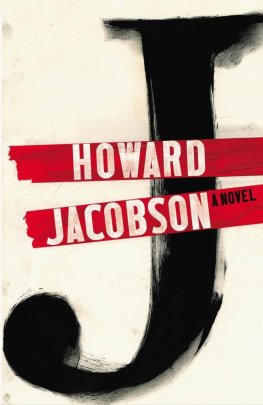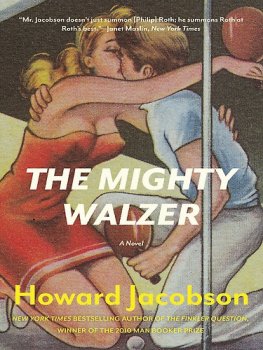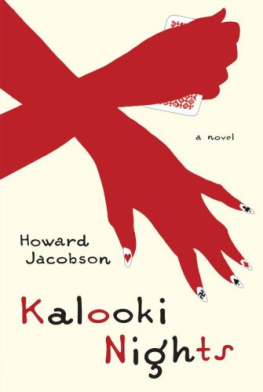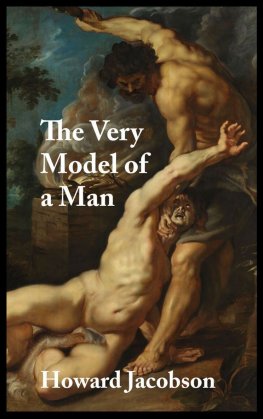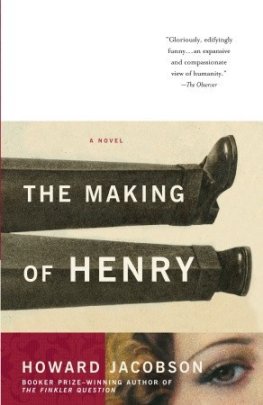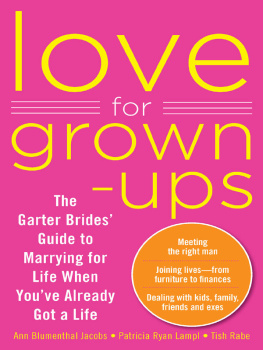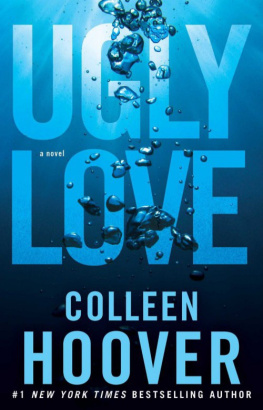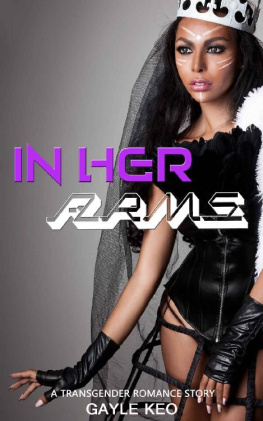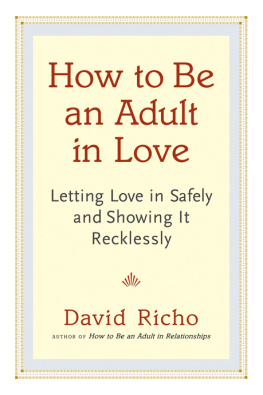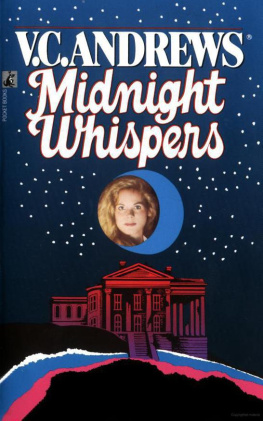Set in the future a world where the past is a dangerous country, not to be talked about or visited J is a love story of incomparable strangeness, both tender and terrifying.
Two people fall in love, not yet knowing where they have come from or where they are going. Kevern doesnt know why his father always drew two fingers across his lips when he said a word starting with a J. It wasnt then, and isnt now, the time or place to be asking questions. Ailinn too has grown up in the dark about who she was or where she came from. On their first date Kevern kisses the bruises under her eyes. He doesnt ask who hurt her. Brutality has grown commonplace. They arent sure if they have fallen in love of their own accord, or whether theyve been pushed into each others arms. But who would have pushed them, and why?
Hanging over the lives of all the characters in this novel is a momentous catastrophe a past event shrouded in suspicion, denial and apology, now referred to as WHAT HAPPENED, IF IT HAPPENED.
J is a novel to be talked about in the same breath as Nineteen Eighty-Four and Brave New World, thought-provoking and life-changing. It is like no other novel that Howard Jacobson has written.
HOWARD JACOBSON won the Bollinger Everyman Wodehouse award in 2000 for The Mighty Walzer and then again in 2013 for Zoo Time. In 2010 he won the Man Booker Prize for The Finkler Question. He has written thirteen novels and five works of non-fiction.
To Jenny here, now, always
The Wolf and the Tarantula
A GREY WOLF fell into conversation with a tarantula. I love the chase, the grey wolf said. Myself, said the tarantula, I like to sit here and wait for my prey to come to me. Dont you find that lonely? the wolf asked. I could as soon ask you, the tarantula replied, how it is that you dont get sick of taking your wife and kids along on every hunt. I am by temperament a family man, the wolf answered. And what is more there is power in numbers.
The tarantula paused to crush a passing marmoset then said he doubted the wolf, for all the help he received, would ever be as successful a huntsman as he was. The wolf wagered a weeks catch on his ability to outhunt the tarantula and, returning to his lair, told his wife and children of the bet.
You owe me, he told the tarantula when they next met.
And your proof?
Well I expect you to trust my word, but if you dont, then go ahead and search the wilderness with your own eyes.
This the tarantula did, and sure enough discovered that of all the wolfs natural prey not a single creature remained.
I salute your efficiency, the tarantula said, but it does occur to me to wonder what you are going to do for sustenance now.
At this the grey wolf burst into tears. I have had to eat my wife, he admitted. And next week I will start on my children.
And after that?
After that? After that I will have no option but to eat myself.
Moral: Always leave a little on your plate.
i
MORNINGS WERENT GOOD for either of them.
Here we go again, Ailinn Solomons said to herself.
She swung her legs out of the bed and looked at her feet. Even before Keverns insult she had disliked them. The broad insteps. The squat scarab toes, more like thumbs, each the same length as the others. She would have liked Pan pipes toes, beautifully graduated, musical, such as a Sylvan god might have put his lips to. She slid them into slippers and then slid them out again. The slippers made them look, if anything, worse. Hausfrau feet. The same old graceless feet, carrying her through the same old graceless life. No wonder, she caught herself thinking. . but couldnt finish. No wonder what?
In reality there wasnt much that was same old about her life, other than the habit of thinking there was. By any objective measure and she could see objectivity, just out of reach she was living adventurously. She had recently moved into a new house. In the company of a new friend. In a new village. For the move she had bought herself new clothes. New sunglasses. A new bag. New nail polish. Even her slippers were new. The house, though new to her, was not new to itself. It felt skulkingly ecclesiastical, which Ailinn had reasons of her own to dislike, as though a disreputable abb or persecuted priest a pastor too austere for his congregation or a padre too fleshly for his had gone to ground there and finally forgotten what he was hiding from. It had stood stonily in its own damp in a dripping valley, smelling of wild garlic and wet gorse, for centuries. Neither the light of hope nor the light of disillusionment made it through its small, low windows, so deep into the valley. It deferred expectation was the best you could say of it. Whoever had lived here before her, they had been, like the vegetation, neither happy nor unhappy. But though she shrank from its associations, it was still an improvement on the square slab of speckled concrete she had latterly grown up in, with its view that was no view of a silted estuary the dull northern tide trickling in from nowhere on the way to nowhere and the company of her frayed-tempered parents who werent really her parents at all.
And and she had met a new man. The one who had insulted her feet.
True, he was no Sylvan god, and would not have put her feet to his lips even if he had been but that was no consolation for her having probably lost him. He had hed had promise.
As for the rest including the new friend, who was much older than her and more a sort of guardian (funny the way she attracted guardians) they struck her as incidentals, a rearrangement of the furniture, that was all. In every other regard she was still herself. That was what was cruel about superficial change: it exposed what could never change. Better to have stayed where she was and waited. As long as you are waiting you cant be disappointed. I was all right when I was in suspense, she thought. But that wasnt true either. She had never been all right.
Her heart, periodically, fluttered. Arrhythmia, the doctor called it. Nothing to worry about, he said when the tests came back. She laughed. Of course it was nothing to worry about. Life was nothing to worry about. In the place she had come from people said that your heart fluttered when someone you loved had died.
What if you dont love anybody? she had asked her adoptive mother.
Then its the anniversary of the death of someone you loved in a previous life, the older woman had answered.
As though she wasnt morbid enough on her own account without having to hear nonsense like that.
She didnt know who her actual mother and father were and remembered little about her life before her faux parents picked her out from the orphanage like an orange, except for how unlike the way she thought a little girl was supposed to be she felt. Today, whatever she could or couldnt remember, she seemed older to herself than her twenty-five years. What about twenty-five hundred? What about twenty-five thousand? Dont exaggerate, Ailinn, people had always told her. (Twenty-five thousand years?) But it wasnt she who exaggerated, it was they who reduced. Her head was like an echo chamber. If she concentrated long and hard enough, she sometimes thought, she would hear the great ice splitting and the first woolly mammoths come lolloping down from central Asia. Perhaps everybody even the abridgers and condensers could do the same but were embarrassed to talk about it. Unless infancy in the company of real parents had filled their minds with more immediate and, yes, trivial sensations. Our birth is but a sleep and a forgetting who said that?

